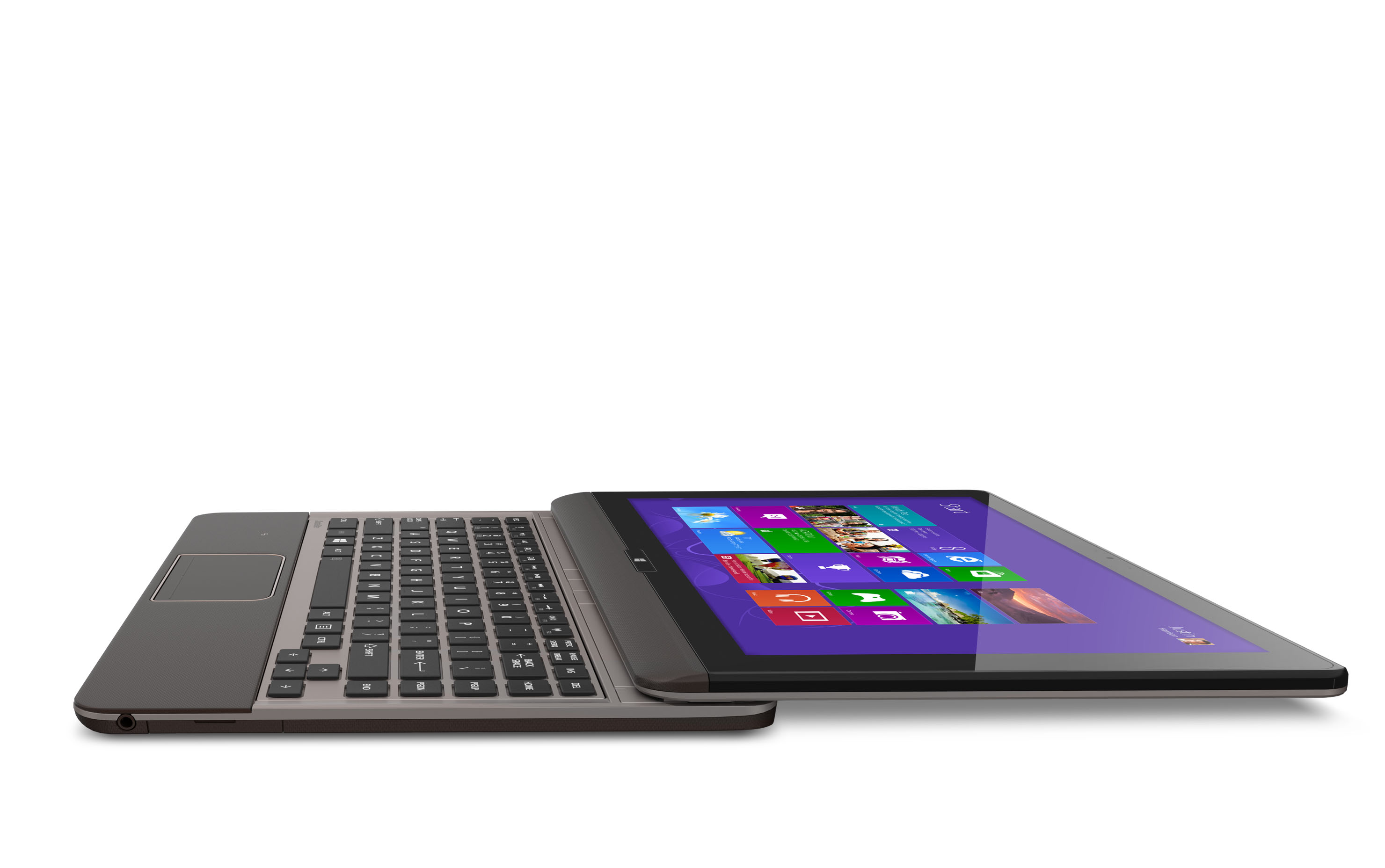Gartner has finally come out and said it: The PC market is dying. Except it hasn't said that, quite. But it is, and saying so is really important. ( Gartner 公司終於說了,並說:PC市場逐漸死去. Except 沒有說,已死了。但它是這樣說是非常重要的。)
The market-research firm predicts a 7.6% decline in PC sales this year, to 315 million units (including desktops and notebooks) from the roughly 341 million PCs sold in 2012. The real knife in the PC's heart, though, is that Gartner is now finally willing to predict a long-term decline: 302 million PCs in 2014, falling to 272 million in 2017, approaching the sales levels of 2006 and 2007.
"While there will be some individuals who retain both a personal PC and a tablet, especially those who use either or both for work and play, most will be satisfied with the experience they get from a tablet as their main computing device," said Carolina Milanesi, research vice president at Gartner, in a?? statement. "As consumers shift their time away from their PC to tablets and smartphones, they will no longer see their PC as a device that they need to replace on a regular basis."
 |
| PC, NB 出貨量大幅減少, 2013 減少 7.68%, 2014 減少 4.12% |
What Gartner Can't Say, And Why
 |
| Toshiba Win 8 Ultrabook |
Gartner, however, can't bring itself to say the PC market is shrinking toward irrelevance. Instead, it describes the PC market as "transitional," in much the same way companies firing large swathes of their workforces insist that employees have been "downsized." If Gartner was a brokerage firm, its analyst would have placed a "hold" rating on the PC market, with all the wishy-washy implications that word connotes.
"Transitional" is one of those wussy words that says nothing. Here it's designed primarily to protect the lucrative relationship that Gartner has with its clients. If Gartner declares an industry dead, why should a company like Dell spend thousands of dollars a pop for a report that says so?
"An analyst cannot issue a sell rating because he doesn't want to lose access,'' former securities analyst Tom Larsen told Bloomberg in 2007. Exactly.
To Gartner's credit, the company began hedging its bets way back into 2010, when the company noted five "disruptive forces" challenging the PC industry, which I've condensed to three below:
- Stale "mature markets" like the United States;
- Thin clients;
- A shift in consumer purchasing habits to tablets and other mobile devices that would displace PC sales and incline companies and individuals to keep PCs longer.
Why Gartner's Hedging Matters
 |
| How can an ultrabook in $899 can compete with $399 tablet |
On balance, then, Gartner's report is nothing more than a reactive sell-side Wall Street analyst which issues a "sell" recommendation after a company has already issued bad news that's tanked its stock. The PC industry is dying, so let's move on.
But we actually need a company like Gartner to declare the PC dead — or at least to release data that supports that view, as it's just done, because companies across all industries use reports from Gartner, IDC, and others to justify their investments.
In order to develop a new PC version of TurboTax, for example, Intuit must demonstrate that there's a market for it. Gartner's report indicates that Intuit and other PC developers should consider abandoning the PC in favor of either a Web service or dedicated applications for various mobile platforms, at least if they want to address a market that's growing instead of shrinking.
We've known since 2010 that mobile devices would play an ever increasing role in our lives. But it's become increasingly clear that the cycle may be accelerating.
Over at his blog Tech-Thoughts, analyst Sameer Singh noted recently that developers are already picking up on this:
The growth of Windows 8 apps has noticeably slowed in Q1 2013. According to the data, the Windows Store is expected to top 50,000 apps by the end of March, but MoM [month-over-month] growth has slowed to just 10-15%. ( Windows8 的應用程序的增長已明顯的於二零一三年Q1放緩。據數據,在Windows應用商店被由三月的末尾預計到頂部 50,000的應用程序,但月環比[月增率]增長已放緩至只是10-15%。)
If the trend continues, the reasons for buying a new PC also decline. Microsoft has begun paying small developers a pittance — $100 per app — to develop for the Windows 8 platform. But that's barely going to pay for a round of beer and appetizers at the end of the day. ( 如果這種趨勢繼續下去,購買新 PC的原因也有所下降。微軟已經開始支付小開發商微薄 - $100美元的應用程序 - 開發 Windows 8 的平台。但是,那支付幾乎只能付一天結束前的一輪啤酒和開胃菜錢。)
"Microsoft's promotion is primarily aimed at low-end publishers," Singh wrote. "Their prime concern at the moment isn't app quality, but quantity. Unless the app growth on the Windows Store remains strong, Microsoft has very little chance of attracting many major developers to the platform."
Gartner's data would indicate that Microsoft faces long odds there. Even if Gartner's too scared to say it.
Gartner:今年全球平板出貨量將達1.97億台 增70%
 |
| Where are the Microsoft in tablet market? |
Gartner周三發布報告稱,今年全球平板電腦出貨量將達到1.97億部,同比增長69.8%。相比之下,今年傳統的台式機和筆記型電腦出貨量將下滑7.3%至3.15億台,而2017年將降至2.72億台。超移動設備(運行完整案頭作業系統的便攜設備,如微軟Surface Pro)今年的出貨量預計為2400萬部,而2017年將增至9600萬部。
但真正的增長引擎還不是超移動設備,而是平板電腦。報告指出,今年全球平板電腦出貨量將達到1.97億部,與2012年的1.16億部相比增長69.8%。
Gartner預計,平板電腦出貨量將超越傳統台式機和超移動設備的出貨量總和,但並未給出具體的時間表。但IDC上個月曾預計,全球平板電腦出貨量今年將超越傳統PC出貨量,明年將超越便攜PC出貨量。
智能手機方面,Gartner預計今年全球智能設備出貨量將達到24億部,同比增長9%。
 |
| Window OS face a very difficult situation in tablet market |
作業系統方面,谷歌和蘋果是贏家,微軟市場份額逐漸流失。Gartner數據顯示,今年Android設備出貨量將達到8.61億部,Windows設備出貨量將達到3.54億部,iOS/MacOS設備出貨量將達到2.93億部。
到2017年,Android設備出貨量將達到14.68億部,Windows設備出貨量將達到5.71億部,iOS/MacOS設備出貨量將達到5.04億部。上述設備包括台式機、筆記本、超移動設備、平板電腦和手機。
在智能手機作業系統方面,Gartner預計2017年微軟Windows Phone將成為第三大移動平台,位居Android和iOS之后。盡管黑莓推出新平台,但市場份額將遠遠落后。相比之下,Windows Phone與iOS之間的差距並不很大。將來,Windows Phone甚至有可能超越iOS。
至於傳說中的Facebook和亞馬遜手機,Gartner分析師卡羅琳娜·米拉內西(Carolina Milanesi)認為,這兩家公司推出自有品牌手機的可能性都不大。
Gartner:平板加速取代 2013年PC市場將持續下滑
根據市調機構Gartner公司統計,2013年全球個人電腦(PC,包括桌上型與筆記型電腦)、超行動裝置(ultramobile)、平板電腦與手機裝置的總出貨量預計將達到24億台,較2012年成長9%。2013年平板電腦銷售量預計將大幅成長近70%,而在去年出現2001年來首度下滑的傳統PC市場將在今年持續縮8%。
Gartner表示,這些運算裝置的整體出貨量還將持續成長,預計在2017年時達到超過29億台的市場規模,而屆時這些裝置之間的出貨量組合預計也將發生顯著變化。
Milanesi強調,Gartner預期2013年PC銷售量將出現下滑,並不是一種因經濟環境嚴峻而導致的暫時趨勢,而是明顯地反映出用戶行為的長期變化。 Gartner認為,透過 ultramobile 等外形輕巧的超行動電腦銷售雖然能彌補部份的傳統PC銷售下滑,但合併傳統PC與超行動電腦的出貨量預計仍將在今年下跌3.5%。
分析
- 台灣整個產業結構與 PC及NB 關係很大,整個上市公司營業額電子業占68.9%,台灣PC及NB 需加速 ARM based PC、平板研發,同時大幅 cost-down Ultrabook,才能應付這轉變;NB、Ultrabook 必須降價至 9 inch tablet 的 1.2倍及1.5倍,才不至於被 tablet 占有所有市場。
- 台灣政府整個人事體系花費須降低,目前政府人事體系花費2兆之 83%,花費在研發促進產業成長卻是年年降低,造成台灣產業技術升級落後,政府人事體系不正確的退休制度正拖垮台灣,政府歲出都給了軍公教就自然犧牲勞工福利及政府提供給 ITRI、III業界研發經費與補助,台灣自稅收支持勞工福利之比率是全世界相當低的,這會導致高階勞工大幅移出台灣,300萬 高階勞工大幅在東南亞、大陸工作,一年內需損失至少是6000億,對台灣經濟衝擊很大;
- 台灣政府須加速與 ARM 合作及產業升級之策略,讓台灣 GDP 不至垮了;
- 一旦,PC及NB 轉變成 ARM based PC,三星8核心整體戰略就會很成功,PC ARM 及 DRAM 都被三星掌控,台灣整個產業將被 Samsung 掌控,50% 上市公司營業額受制於Samsung,非常危險情況,我實在看馬政府怎會笨到,冒著產業升級緩慢之風險,只去看顧那些只會讓台灣衰退的政策;
- 台廠需注意超大尺寸 Smartphone 稱 Phablet 將大流行,是否將是新的台廠轉型機會?( Phablet trend is quite important to Taiwan NB industry, so Taiwan brand companies like Asus、HTC、Acer must considerate the trend to be their product strategy )
- 要防止台灣 PC 市場分散成 tablet 市場失去整個 personal computing 市場,有幾個重要策略:
- ARM based NB、Ultrabook 關鍵零組件技術及cost down plan;
- 台灣政府須加速與業界合作,政府是很易拿出 20億,共同發展關鍵 IP;
- 台廠需注意超大尺寸 Smartphone 稱 Phablet 市場,加速 cost down 及 new feature 計劃;
- 台廠還需注意 Chromebook 關鍵零組件技術及cost,Chromebook 逐漸成為上網族的 NB,它將突破 Microsoft OS 的 Windows 8 計劃與 Android 結合,實現許多上網族的 NB 之優點;
- Ultrabook 及 NB 在價格上就已經輸 iPad 及 Android Tablet 很多,若不將價格拉近將會失去許多市場。
- 加速關鍵零組件、網路產業也是下一個重點;












沒有留言:
張貼留言